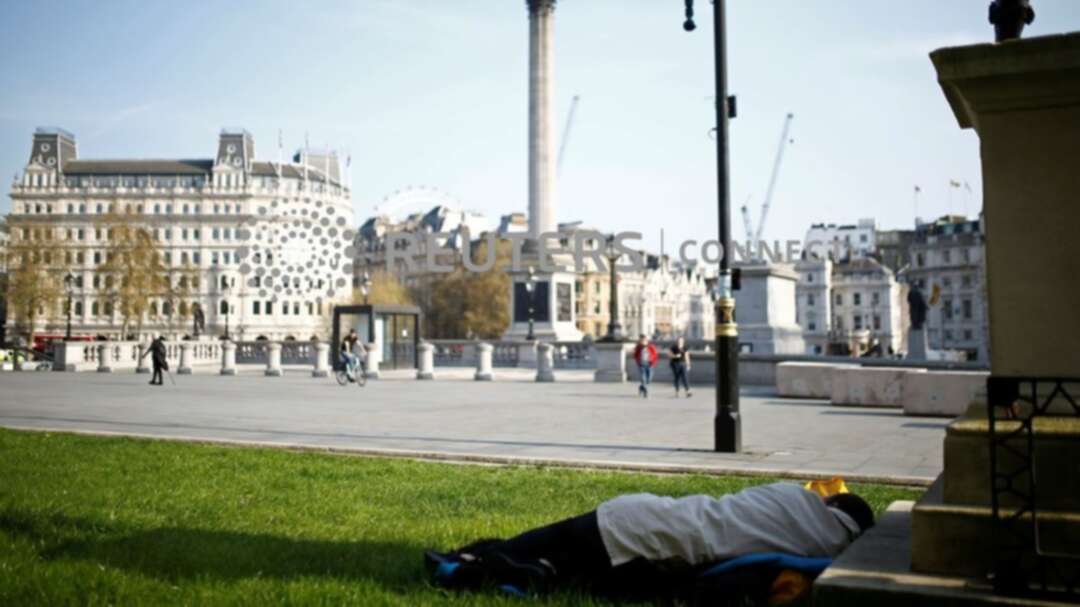-
Figures Show Rise In Number Of People Sleeping On The Streets Of London

According to RT, rough sleeping has risen in London over the past year, new figures show, despite the government promising to house everyone during the pandemic, and allocating over £700 million to support current and potential rough sleepers.
Data released by the Combined Homelessness and Information Network (CHAIN) shows that 11,018 people were seen rough sleeping in the Greater London area between April 2020 and March 2021 – a 3% increase on the previous year.
The number of people sleeping on the streets for the first time has risen by 7%, with first-timers now making up 68% of the overall number of rough sleepers, many having lost accommodation as a result of hardship prompted by pandemic restrictions. The report goes on to reveal that this year’s total is almost twice that of 10 years ago, when 5,678 people were seen rough sleeping.
In March last year, at the start of the coronavirus pandemic, the government announced the Everyone In initiative, asking local authorities in England to “help make sure we get everyone in”, including those who would not normally be entitled to assistance under homelessness legislation.
A rough-sleeping taskforce was set up, with local authorities across the country seeking to ensure that people sleeping rough and in accommodation unsuitable for self-isolation, such as shelters and assessment centres, were “safely accommodated to protect them, and the wider public, from the risks of Covid-19”. Local authorities block-booked hotel rooms and other en-suite accommodation, and provided food and medical care. According to the government, a total of over £700 million ring-fenced funding has been allocated in 2020/21 “to support rough sleepers and those at risk of rough sleeping”.
RT reported that in April last year over 90% of rough sleepers in England had been offered accommodation as a result.
The report by CHAIN puts the number of rough sleepers in Greater London between April 2019 and March 2020 at more than 10,700. It explains that people are registered as rough sleepers if they have been encountered by an outreach worker while bedded down on the street or in another open space or location not designed for habitation. The official count published on the UK Parliament’s website records the much lower number of 4,266 in England in the immediately preceding period of autumn 2019, however.
Campaigners for the protection of the homeless praised the steps taken by the government at the beginning of the pandemic, but pointed out that they weren’t sufficient. Jon Sparkes, the CEO of Crisis, the campaign to end homelessness, told the media the measures were “brilliant but short-lived”, and called for “long-term solutions” to “end rough sleeping for good”.
At the end of last year, the government promised more funding in 2021/22 to support the delivery of long-term accommodation for rough sleepers in England.
Source: RT
Image source: Reuters-RT
You May Also Like
Popular Posts
Caricature
BENEFIT Sponsors BuildHer...
- April 23, 2025
BENEFIT, the Kingdom’s innovator and leading company in Fintech and electronic financial transactions service, has sponsored the BuildHer CityHack 2025 Hackathon, a two-day event spearheaded by the College of Engineering and Technology at the Royal University for Women (RUW).
Aimed at secondary school students, the event brought together a distinguished group of academic professionals and technology experts to mentor and inspire young participants.
More than 100 high school students from across the Kingdom of Bahrain took part in the hackathon, which featured an intensive programme of training workshops and hands-on sessions. These activities were tailored to enhance participants’ critical thinking, collaborative problem-solving, and team-building capabilities, while also encouraging the development of practical and sustainable solutions to contemporary challenges using modern technological tools.
BENEFIT’s Chief Executive Mr. Abdulwahed AlJanahi, commented: “Our support for this educational hackathon reflects our long-term strategic vision to nurture the talents of emerging national youth and empower the next generation of accomplished female leaders in technology. By fostering creativity and innovation, we aim to contribute meaningfully to Bahrain’s comprehensive development goals and align with the aspirations outlined in the Kingdom’s Vision 2030—an ambition in which BENEFIT plays a central role.”
Professor Riyadh Yousif Hamzah, President of the Royal University for Women, commented: “This initiative reflects our commitment to advancing women in STEM fields. We're cultivating a generation of creative, solution-driven female leaders who will drive national development. Our partnership with BENEFIT exemplifies the powerful synergy between academia and private sector in supporting educational innovation.”
Hanan Abdulla Hasan, Senior Manager, PR & Communication at BENEFIT, said: “We are honoured to collaborate with RUW in supporting this remarkable technology-focused event. It highlights our commitment to social responsibility, and our ongoing efforts to enhance the digital and innovation capabilities of young Bahraini women and foster their ability to harness technological tools in the service of a smarter, more sustainable future.”
For his part, Dr. Humam ElAgha, Acting Dean of the College of Engineering and Technology at the University, said: “BuildHer CityHack 2025 embodies our hands-on approach to education. By tackling real-world problems through creative thinking and sustainable solutions, we're preparing women to thrive in the knowledge economy – a cornerstone of the University's vision.”
opinion
Report
ads
Newsletter
Subscribe to our mailing list to get the new updates!






















